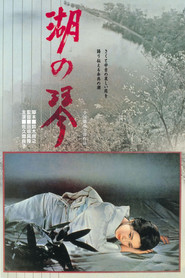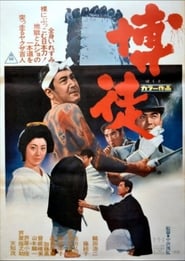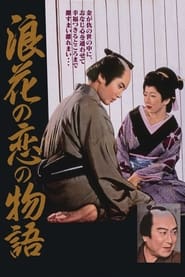detail profile kaoru ky c5 8dmachi
Peran Yang Di Mainkan Kaoru Kyōmachi
 A touching story following young shamisen...
A touching story following young shamisen...Koto—The Lake of Tears 1966
A touching story following young shamisen string maker, Saku. Beautiful Saku moves to Lake Yogo, known for its production of quality shamisen strings, only to find her peaceful life turned upside down when a master musician takes personal interest in her.
 Okawa Hashizo is Red Peony Hanji...
Okawa Hashizo is Red Peony Hanji...The Shogun's Vault 1964
Okawa Hashizo is 'Red Peony' Hanji who is thrown into a prison cell where he gets involved in a plot to steal government gold from the Shogun's vault. A tough fighter, he has to show his ability in order to keep from getting himself killed by the prisoners, too. Co-starring some of the biggest name in movies at the time, including Kataoka Chiezo and Tanba Tetsuro this film is loaded with surprises. From the opening moments when prisoners carry out their own form of justice, killing a crooked ex-constable, it is clear that this is the work of a visionary filmmaker.
 The main character Tachibana Isaburo is...
The main character Tachibana Isaburo is...Gambler 1964
The main character Tachibana Isaburo is released from prison and discovers that his boss is dead. He is offered to become the leader of the group, but refuses. A young fashion villain, a Yakuza boss wants to get into politics. He makes a deal with the Osaka Railway Company, leaving many poor people homeless. Tachibana engages in a fierce battle with villains for the poor.
 Fifteen years after Ishida Mitsunari lost...
Fifteen years after Ishida Mitsunari lost...The Red Shadow 1961
Fifteen years after Ishida Mitsunari lost in the battle of Sekigahara, Tokugawa Ieyasu foresees his unavoidable battle with Toyotomi Hideyori and goes into Fushimi Castle. At the night, Hattori Hanzo, the leader of 36 Iga members who were performing as guards of the castle, perceives the existence of a ninja and captures the mysterious sneaker.
 The adopted son of an Osaka...
The adopted son of an Osaka...Chikamatsu's Love in Osaka 1959
The adopted son of an Osaka courier falls in love with a prostitute and, discovering that she is about to be purchased by a client, steals money from his employer to redeem her. Hunted criminals, the two young lovers take flight to Yamato, but, as in Chikamatsu's other domestic tragedies of love and duty (known as sewamono), they must be pursued and their passion destroyed by death. Favourite Uchida themes, such as the indenturing of a prostitute , and his characteristic emphasis on performance and theatrical artifice re-emerge here; but the daring device of having Chikamatsu appear as a character - not unlike having Shakespeare interpolated into a film adaptation of one of his plays - is just one of many surprises this remarkable film holds. “Extraordinary” (Donald Richie).


